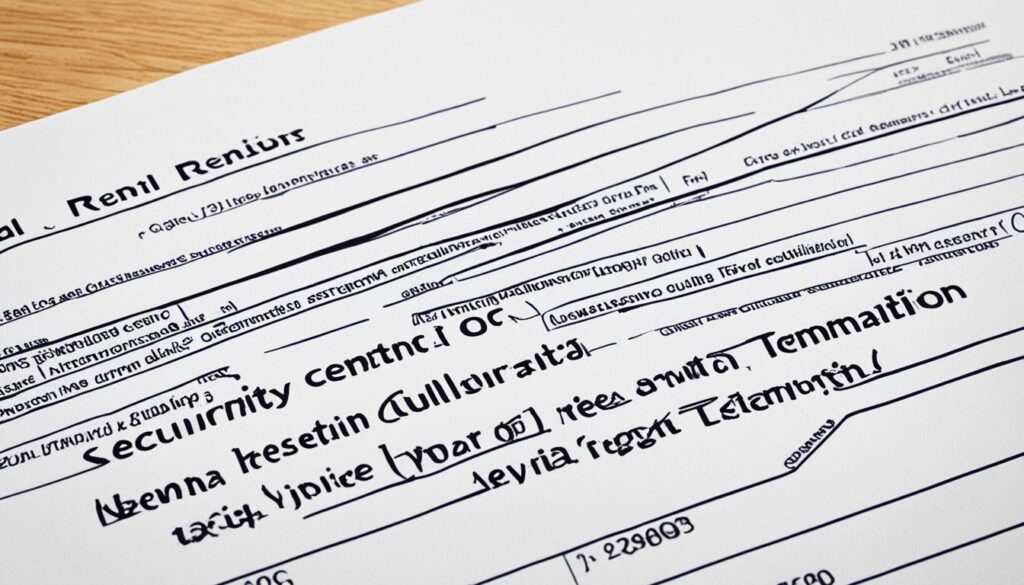Renting in Italy presents a unique experience filled with opportunities and challenges, making it essential for tenants to grasp the Italy rental regulations and Italian rental laws. Understanding tenant rights in Italy is crucial as it empowers renters to navigate the housing market effectively and ensures that they are not taken advantage of during the rental process. This section will explore the vital aspects of renting in Italy, covering everything from standard lease agreements to the nuances associated with short-term and long-term rentals. Informed tenants are better prepared to avoid common pitfalls, facilitating a smoother transition into their new homes. Insights on necessary documentation and practical tips for negotiating rental terms will also be discussed, ensuring you are equipped with the knowledge needed for a successful rental experience. For more information on the rental process, take a look at this guide on renting in Italy1.
Additionally, understanding the competitive market for rentals in popular cities can further enhance your renting journey. With properties in high demand and specific regulations governing rental agreements, being proactive is key. For a comprehensive overview of what you should know, explore this resource on renting in Italy2.
Key Takeaways
- Be aware of the different types of rental agreements, such as fixed-term and transitory leases.
- Understand your rights as a tenant under Italian law to avoid exploitation.
- Prepare necessary documentation including rental references and proof of income.
- Consider engaging a local real estate agent for assistance navigating the market.
- Inspect properties thoroughly before signing any contracts to note existing damages.
- Negotiate rental terms like deposit amounts and maintenance responsibilities.
Contact us if you are Interested in Buying Property Abroad!
Understanding Italian Rental Laws
Italian rental laws create a framework that significantly impacts both tenants and landlords. Understanding the intricacies of these laws is essential for anyone considering renting in Italy. From defining the legal requirements for renting in Italy to clarifying tenant rights and obligations, being informed protects tenants and ensures a smoother renting experience.
Overview of Italian Rental Regulations
In Italy, renting laws establish clear guidelines on how rental agreements are formed and terminated. Different types of rental contracts cater to varied needs, including long-term leases that can last from four to eight years and options for transitory agreements for shorter stays. Interestingly, Italian law mandates landlords to register rental contracts with the tax office, ensuring compliance and transparency within the rental market.
Tenant Rights in Italy
Tenants in Italy enjoy robust protections under the law. They cannot be evicted without just cause, and landlords are compelled to maintain habitable living conditions. Despite the challenges landlords face, such as the requirement to submit a declaration of hospitality to local authorities within 48 hours of a tenant’s arrival, tenant rights are firmly established, safeguarding quality living spaces and proper maintenance {3}. These protections empower tenants to advocate for their living conditions and financial security.
Legal Responsibilities of Tenants
While enjoying rights, tenants must also fulfill specific legal responsibilities. They are obligated to pay rent timely and adhere to the terms outlined in their rental agreements. Depending on the agreement type, such as a Contratto di locazione a tariffa concordata or a Contratto 4+4, tenants can expect various commitments, including potential notice periods for termination. Non-compliance with these agreements can lead to evictions or legal disputes, emphasizing the need for awareness concerning both tenant rights and responsibilities under the Italian rental laws {4}.
Types of Rental Agreements in Italy

When renting property in Italy, understanding the types of rental agreements available is crucial. These contracts can be broadly categorized into short-term and long-term rental agreements, each with specific terms and conditions that tenants should be aware of. Knowing the Italy tenancy rules associated with each type will allow for a more informed decision when entering a rental agreement.
Short-Term Rental Contracts
Short-term rental contracts are often designed for tourists or individuals needing temporary housing solutions. These agreements typically span from a few days up to 18 months. Contracts such as the Touristic Contracts apply to stays of less than 30 days, providing flexibility for travelers. In many regions, these contracts are in high demand and may come with additional rental property guidelines in Italy to follow, ensuring compliance with local regulations. During a stay, landlords can’t request more than three months’ rent in advance, and typically tenants are asked to pay six months’ rent – three as an advance and three as a deposit, which is returned at the contract’s end with interest5
.
Long-Term Rental Contracts
Long-term rental contracts are more stable and can be categorized based on the duration and rent structure. The most common types include:
| Contract Type | Minimum Duration | Renewal Options | Key Features |
|---|---|---|---|
| Free-Market Agreement | 4 years | Renewable 4 years | Rent initially negotiated; increase limited to 75% of inflation rate |
| Determined Rent Agreement | 3 years | Renewable 2 years | Fixed rents set by tenants’ and landlords’ associations |
It is essential for tenants to register these agreements with the Italian Revenue Agency within 30 days to make the contract valid. The indexation clause for rent may adjust payments according to ISTAT consumer price index changes. A security deposit cannot exceed three times the monthly rent6. It’s wise for parties entering into a lease to create an inventory document that details property contents, existing faults, and number of keys – this helps safeguard interests for both tenants and owners.
Contact us if you are Interested in Buying Property Abroad!
Renting in Italy Rules: Essential Information for Tenants

Renting in Italy requires understanding the essential documentation and key terms associated with rental agreements. Familiarizing yourself with Legal requirements for renting in Italy will help streamline the leasing process.
Documentation Required for Renting
To rent a property in Italy, tenants must prepare several important documents. These include:
- A valid identification document, such as a passport or identity card.
- Proof of income or employment.
- A “codice fiscale” (tax identification number).
Additionally, it’s vital to understand that beyond the monthly rent, there could be extra costs such as condominium fees, utilities, and local taxes. Clarifying which expenses the landlord covers can help tenants prepare adequately for these costs, aligning with Italy rental regulations7.
Key Terms and Conditions in Rental Agreements
When reviewing rental agreements, understanding key terms is crucial. For instance, the notice period for terminating a lease and conditions under which rent might increase are pivotal. Tenants have specific rights, including obtaining receipts for rent payments and making property improvements provided they do not alter the usage of the property8. It is common for tenants to negotiate lease terms, which may include aspects such as rent price, deposit amount, and maintenance responsibilities.
By comprehensively discussing these topics, including the vital documentation and component terms of rental agreements, tenants can navigate the Italian rental market more effectively. Being informed of the Italian rental market regulations can empower individuals during the renting process. For more detailed insights into the renting process in Italy, you can explore this helpful guide.
Finding the Right Property
Searching for a rental property in Italy can be both exciting and overwhelming. Engaging a qualified real estate agent can greatly ease this journey, as they possess in-depth knowledge of the Italian rental market regulations and can guide you through the various facets of finding a rental in Italy. These professionals can negotiate on your behalf and help ensure that you land the perfect place without falling victim to common pitfalls.
Engaging a Real Estate Agent
Real estate agents in Italy are invaluable resources when it comes to navigating the sometimes intricate rental landscape. They can assist in identifying reputable listings and protecting tenants from potential scams. According to the data, a skilled agent can significantly enhance your experience, helping you understand rental property guidelines in Italy while saving you time and reducing stress. Together, these advantages can translate to a more efficient property search.
Online Platforms and Local Listings
For those inclined to take a do-it-yourself approach, various online platforms, such as Airbnb and Booking.com, provide numerous listings for both short-term and long-term rentals. However, tenants should approach these sites with caution and conduct thorough research. It’s crucial to verify the legitimacy of listings and be aware of local rental laws to minimize the risk of scams. Ultimately, while technology offers many resources for finding a rental in Italy, combining it with expert human insight can optimize your property-searching experience. For more in-depth information on tenants’ rights and obligations in Italy, check out this comprehensive guide9.
Contact us if you are Interested in Buying Property Abroad!
FAQ
What are the necessary documents for renting a property in Italy?
What rights do tenants have under Italian rental laws?
What is the difference between short-term and long-term rental contracts in Italy?
Are there specific legal requirements for renting in Italy?
How can I find a rental property in Italy?
What should I include in my rental agreement?
What are the landlord's responsibilities according to Italian rental laws?
Source Links
- https://easymilano.com/the-ultimate-guide-to-successfully-renting-a-property-in-italy/
- https://anamericaninrome.com/2021/01/a-quick-guide-to-rental-agreements-in-italy/
- https://blog.keycafe.com/understanding-short-term-rentals-regulations-in-italy/
- https://www.capecchilegal.com/rent-in-italy/
- https://lawyersitaly.eu/rental-contract-in-italy/
- https://per-legal.com/home/en/residential-tenancy-agreements/
- https://damien65.medium.com/mastering-the-italian-rental-market-your-comprehensive-guide-to-finding-and-securing-the-perfect-3312f890aec7
- https://www.idealista.it/en/news/property-rent-italy/2019/02/26/2381-what-are-your-rights-and-responsibilities-when-renting
- https://www.kiplinger.com/real-estate/purchasing-and-renting-a-property-in-italy

Comments